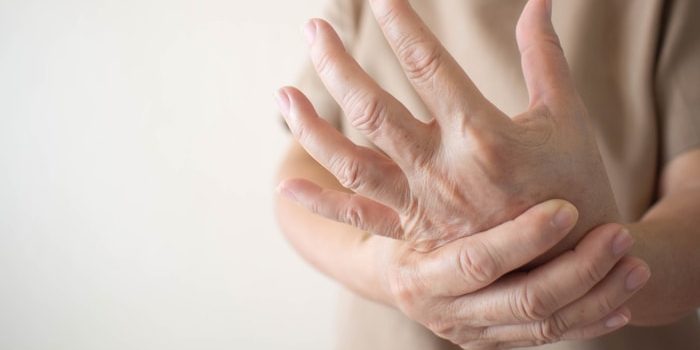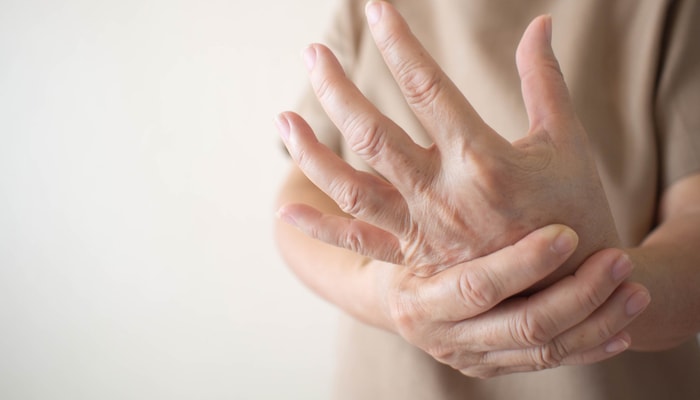


If you feel strange pain in your extremities, such as in your hand or feet, you might be feeling peripheral neuropathy. Neuropathy is the result of damage to nerves and can cause numbness and aches in your body, typically in your hands and your feet. Commonly caused by diabetes mellitus, inherited genetics and infections, peripheral neuropathy damages nerves that are trying to send signals to your central nervous system. It’s possible that the pains you’re feeling in your extremities that neuropathy is to blame for it!
You Could be Suffering from Peripheral Neuropathy
Overview
Generally the pain is described as being a tingling, burning or stabbing sensation depending upon the intensity. There are some medications that can ease the pain, and many patients report that the pain lessens over time when treated. The disease is inherently degenerative: nerve endings that die send complex signals that are interpreted as pain before numbness sets in in their absence. This sensation is highly uncomfortable and can make it difficult to walk or type, depending on which extremities are affected.
The symptoms of this condition include weakness, numbness, stabbing pains and difficulty executing motor tasks. These reasons are generally brought on due to the types of nerves that are affected.
Common Symptoms
Commonly, the type of nerve affected will dictate the type of symptoms you see with regards to neuropathy. Sensory nerves, motor nerves and autonomic nerves all serve different functions in the body. Sensory nerves are the ones you know the best, and they’re the ones that allow you to feel things. Motor nerves are the nerves present in your muscles that allow you to move and manipulate your environment. Autonomic nerves are nerves that control the automatic functions of your body such as your digestion, bladder, heart rate and other such functions.
If you feel numbness, tingling and prickling and jabbing pains, your sensory nerves may be affected by neuropathy. This often also leads to lack of balance, lessened coordination and difficulty walking or using one’s hands. If your motor nerves are affected, it could result in muscle weakness and even paralysis. The lack of motor nerves in a muscle would make it more difficult, or even impossible, to send signals from your central nervous system to your muscles.
If your autonomic nerves are being affected the condition could include problems with digestion or your bladder, or even issues with your bowels. Intolerance to heat is another common symptom. Blood pressure changes can occur, causing sudden dizziness and issues with circulation.
Common Causes
Peripheral neuropathy isn’t a condition that occurs in and of itself typically. Normally the condition occurs as a result of an outside factor. Commonly, these factors can be controlled or treated and allow a chance to fight the neuropathy. Examples of common causes include alcoholism, which can cause lasting nerve damage, and diabetes. Diabetes, in particular, is one of the biggest causes of neuropathy. In fact, around half of all people with diabetes develop some form of neuropathy.
Less common causes that people encounter include poisons, such as heavy metals, toxic substances an the like that can cause nerve damage. Another example is through an injury that causes the nerves to become damaged.
Commonly, injuries sustained during car accidents, while playing sports or from falls can damage nerves and cause neuropathy. Certain deficiencies can also lead to neuropathy, such as vitamin B-1, B-6 and B-12 deficiencies. Other causes could be genetic disorders, infections, tumors, and even bone marrow disorders.
Risks and Complications
If you have risk factors that could lead to the development of neuropathy, such as genetic predisposition, exposure to toxins or recent injuries, speak with your doctor. If you have neuropathy, you will likely not notice when you sustain injuries to your extremities. As such, it’s very important that you check them often. If your hand is being burned, or if you have stepped on a nail, your body being numb won’t alert you to that.
Additionally, those with neuropathy in their feet have difficulty walking. Uneven ground, loose soil and unstable footing all pose serious fall risks for those with neuropathy.
When to See a Doctor
If you think your pain or numbness is related to neuropathy, don’t hesitate to visit a doctor. You don’t want to take chances when it comes to your health! Visit your physician and talk to them about what you’re experiencing. They might be able to treat your pain. The sooner you start combating neuropathy the better, so don’t be afraid to try to get help right away!










